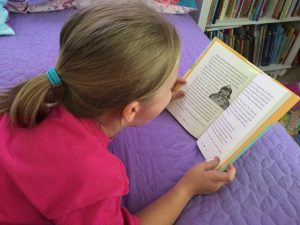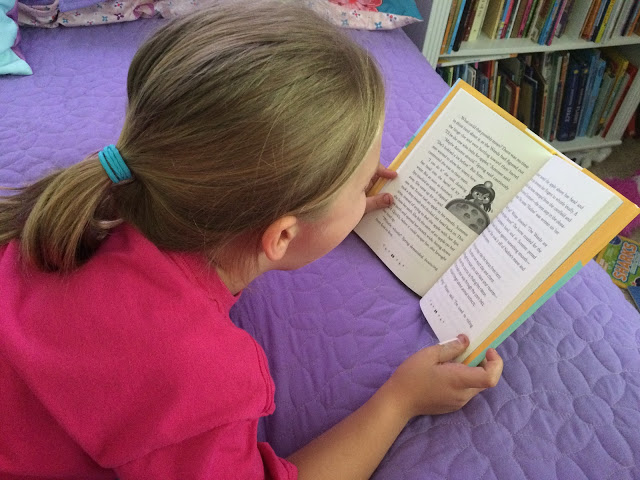
According to a study conducted by the U.S. Department of Education and the National Institute of Literacy, 32 million adults in the United States cannot read, which accounts for 14 percent of the population. One out of every four children in America cannot read. As a society, we cannot allow this alarming statistic to go unnoticed. As parents, we must not allow our children to fall into this growing category of illiteracy.
Reading requires children to accurately utilize all of their visual, language, phonetic and decoding skills to successfully recognize and understand written words. There are numerous reasons why children lack the ability to read, but vision deficiencies can be a major cause. When reading a book, you must utilize 17 visual skills for optimal performance. These skills include: focusing, eye tracking, aiming the eyes together and visual perception (the ability to interpret, analyze and comprehend what is being read). Basic school eye exams only test children’s 20/20 distance vision, failing to test the strength of their other 16 vision skills. Eye doctors check your child’s general ability to see near and far, as well as the risk for eye disease; however, a developmental optometrist is trained to give a thorough assessment of all 17 skills needed to be able to properly read.
If your child does not read, often complains about reading, suffers from headaches or fatigue while trying to read, or struggles in school, he or she needs to have all of their vision skills evaluated. Many vision problems go hand-in-hand with reading troubles. Some of the more common treatable vision diagnoses that can hinder your child’s ability to read are:
- Convergence insufficiency or excess (inability to aim the eyes together to read)
- Spatial awareness issues (letter and word reversals while reading, which is often misdiagnosed as dyslexia)
- Amblyopia or lazy eye (one eye dominates and does most of the work, which causes the unused eye to grow weak)
- Strabismus (wandering or crossing eyes, which send conflicting visual images to the brain)
After a proper diagnosis of their vision problem, a developmental optometrist can then design an individualized vision therapy program for your child. Vision therapy sessions will consist of age-appropriate exercises that enhance and encourage the reading performance in your child.
Our children must not miss out on the joy of reading Dr. Seuss, Junie B. Jones, Curious George, or J.K. Rowling’s infamous book series Harry Potter. These books challenge their minds and enhance their imaginations, while increasing their vocabulary and encouraging them to dream big. Reading with your child provides you both with quality one-on-one time that can lift his or her confidence in school. A love for reading at an early age sets the stage for a lifetime of success for your child.
Take an active role in encouraging your child to set their video game controller aside and pick up a good book. If he or she seems to have trouble reading age-appropriate books, it is time to give us a call to discover why. For more information on how to improve your child’s reading skills, contact us here. Happy reading!
